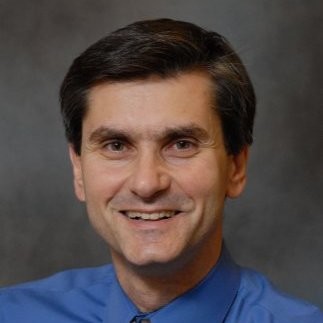
February 2024
Lazaros Kochilas’ clinical research focuses on what happens to babies born with heart defects, also known as congenital heart defects (CHD). Over the past six decades, the landscape of interventions has evolved for managing such defects. In the absence of early interventions, decisions regarding which defects to address, when, and how were based on the natural progression of the conditions. These studies on natural progression provided important insights on the timeline for potential complications such as heart failure, pulmonary hypertension, and organ injuries that could ultimately lead to mortality. The advent of interventions has given hope for a brighter outlook for the lives of children born with congenital heart defects by delaying complications to restoring normal heart function fostering longer, more productive, and enjoyable lives for the numerous children born with congenital heart defects each year.
While cardiac interventions can restore a normal heart function and promise a near-normal life trajectory for patients with milder and less complex forms of diseases, more complex cases may not be completely curable. Nonetheless, they can still be repaired in a manner that affords patients a good quality of life. Dr. Kochilas and his team are now directing their focus towards understanding how hearts respond to such interventions for the ever-growing number of patients living with repaired heart defects.
Dr. Kochilas’ research is based on a long-standing registry that compiles data on the heart disease and treatment at the time patients leave the hospital. Leveraging the patients’ condition and their socioeconomic/environmental exposures at the time of discharge, Dr. Kochilas and his team strive to construct models to illustrate the risks of developing complications leading to heart transplant or mortality post-repair. Additionally, his group tries to understand the quality of life and functionality many years after being operated on for a congenital heart defect. Special emphasis is given to the challenging group with single ventricle congenital heart disease, which faces elevated risks of early complications affecting various organs and leading to premature mortality. Recognizing the significance of understanding the link between patients' characteristics at the time of repair and their long-term outcomes, Dr Kochilas believes that this lead to improve surveillance and treatment strategies for these patients. Looking ahead, his future plans involve studying the genetic characteristics associated with long-term success after congenital heart disease repair using bio-samples from patients to further our comprehension and improve outcomes in this critical field.

